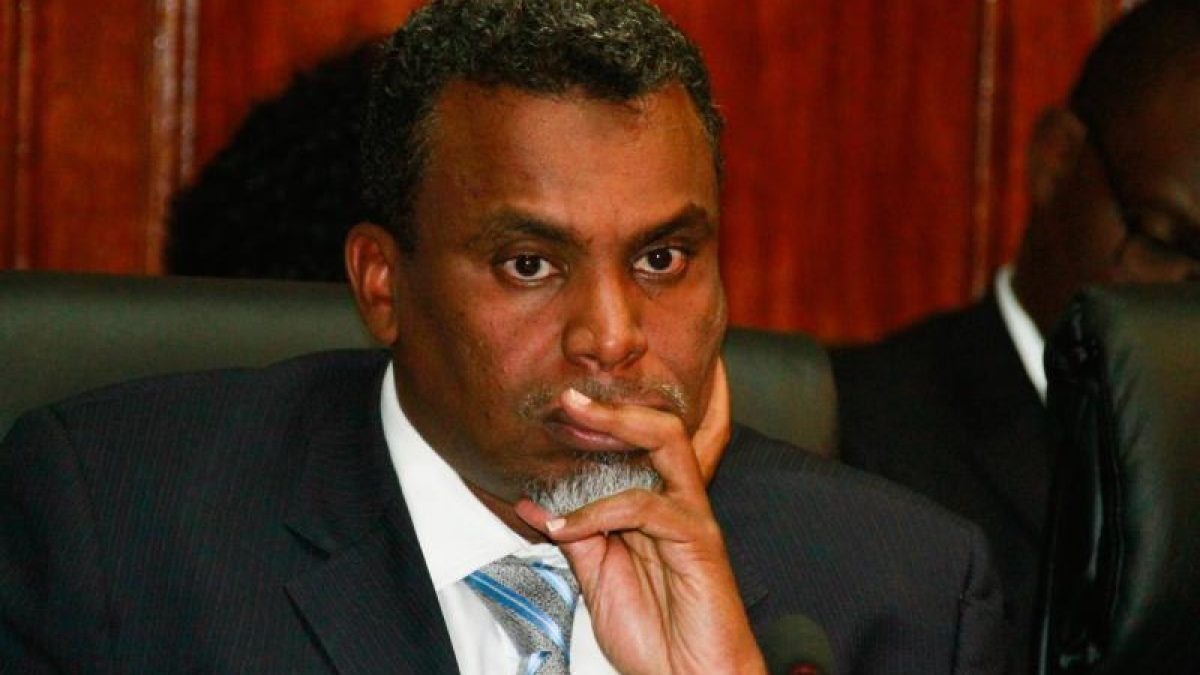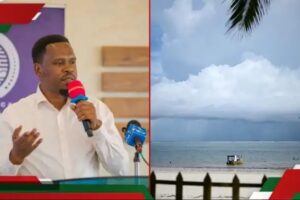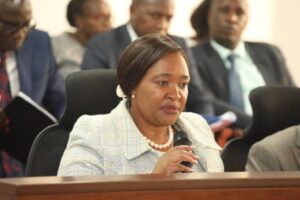Noordin Haji, the Director of Public Prosecutions (DPP), has requested the Senate to reject a citizen’s proposal to revoke bail to suspects of corruption, rape, and robbery with violence.
During a hearing on Tuesday, DPP Haji told the Senate Justice, Legal Affairs, and Human Rights Committee that granting the petition would violate the constitutional tenet that a person is presumed innocent unless proven guilty.
“Article 50(2) of the Constitution of Kenya, 2010 guarantees a presumption of innocence on all accused persons regardless of the nature of the offence(s). There is already in place the Victims Protection Act passed by Parliament pursuant to Article 50( 9) of the Constitution. This Act contains detailed provisions on the rights of victims including participating in criminal proceedings,” the DPP explained
Taratisio Ireri Kawe petitioned the Senate in August to alter the Constitution and related legislation, notably the Penal Code, to hold the accused until their cases were resolved.
Furthermore, Kawe requested that the House amend Article 49 of the Constitution to include a classification of types of offences as well as a maximum number of days a suspect of specific offences is held in custody, citing frustrations experienced by victims of heinous acts such as rape who have been forced to abandon cases as offenders are released on bond.
“The ambiguity should be removed and hefty bail and bond terms on all financial crimes in nature, economic crimes and all crimes well being against them introduced,” Kawe stated in a petition which was submitted before the Senate in August.
Senators Mutula Kilonzo Junior (Makueni), Johnson Sakaja (Nairobi), and James Orengo (Siaya) have warned that denying suspects of any crime bail is a hazardous trend that the legislature should not embrace.
“The ODPP has given sufficient reasons legal, constitutional, statutory and otherwise, why we can not have a claw-back on Human Rights provisions outlined in the Constitution,” said the Siaya Senator.
”What the DPP has said is very true and very clear, on top of the instruments and how we run things in Kenya, I think it is very clear that those rights of bail and bonds are already there.” Nairobi Senator Sakaja said.
“For the avoidance of doubt, I think this petition should have been dismissed summarily because it is a claw-back on The Bill of Rights,” Makueni Senator Kilonzo Junior stated.

About ODPP
The mandate of ODPP as derived from Article 157 of the Constitution is to institute and undertake prosecution of criminal matters and all other aspects incidental thereto.
Core functions:
- Instituting and undertaking criminal proceedings against any person before any court of law except the court-martial;
- Taking over and continuing with any criminal proceedings commenced in any court by any person or authority with the permission of the person or authority and
- Discontinuing at any stage before judgment is delivered of any criminal proceedings with the permission of the court.
- Directing the Inspector General of the National Police Service to investigate any information or allegation of criminal conduct.
Other functions include:
- To ensure due regard to the public interest, the interest of the administration of justice and the prevention and avoidance of abuse of legal process;
- To undertake public prosecution of cases forwarded by all investigation agencies including the Police, Ethics and Anti-corruption Commission, Directorate of Criminal Investigations (DCI), Banking Fraud Investigations Units (BFIU), and cases taken over from private prosecutors;
- To represent the State in all criminal cases, criminal applications, and appeals;
- To advise Government Ministries, Departments, and State Corporations on matters pertaining to the application of criminal law;
- To expound and disseminate the National Prosecution Policy (NPP) and the Code of Conduct for Prosecutors;
- To monitor the training, appointment, and gazettement of Public Prosecutors in Statutory Corporations;
- To address parliamentary questions relating to the administration of criminal justice;
- To address complaints raised by members of the public, watchdog bodies, and other institutions; and
- To Undertake other administrative roles relating to the efficient and effective administration of criminal law in the country















